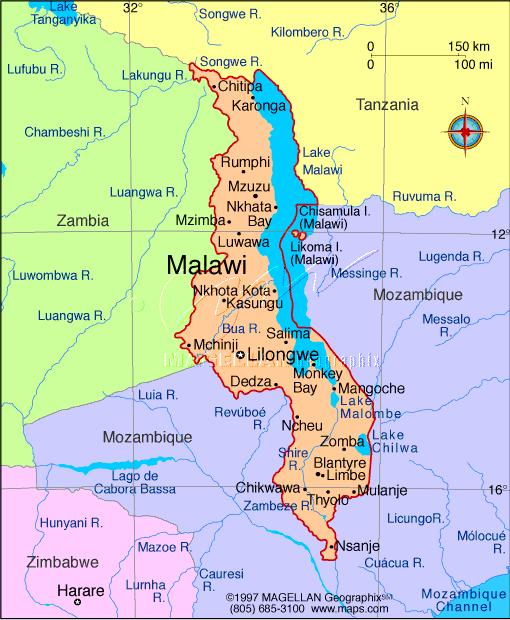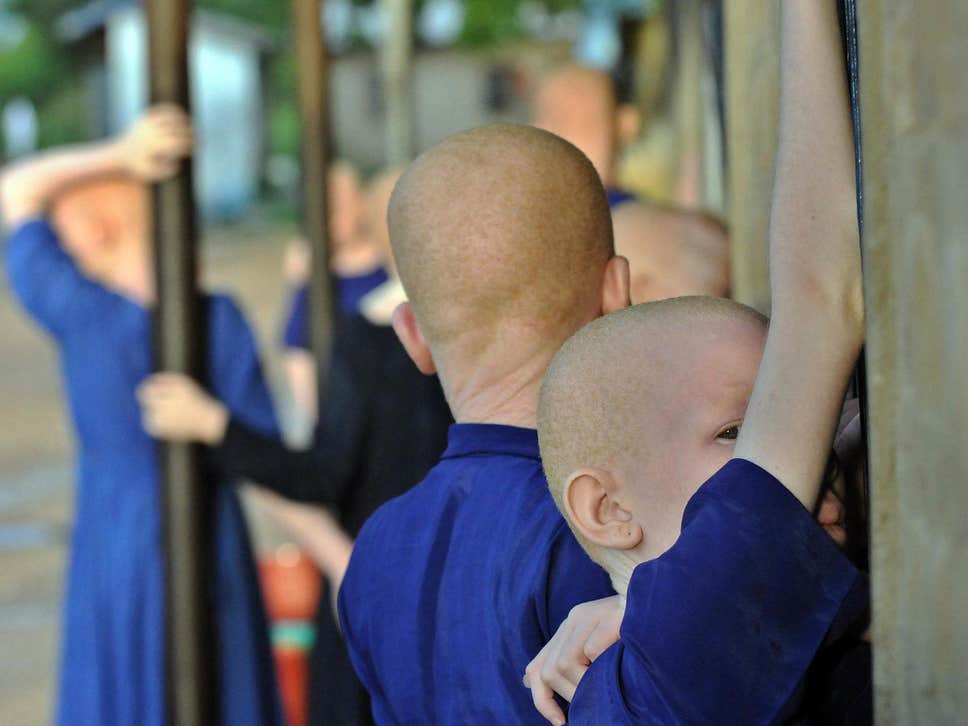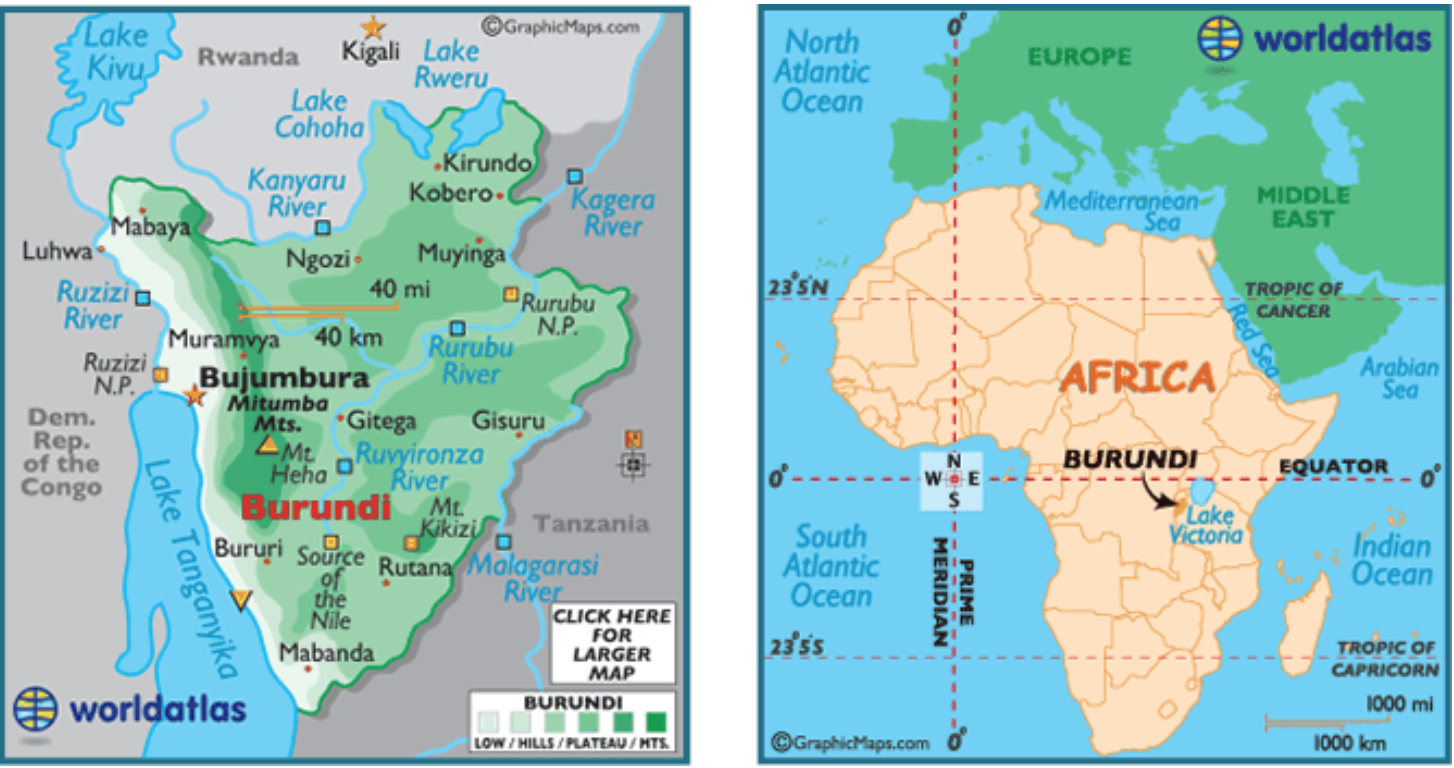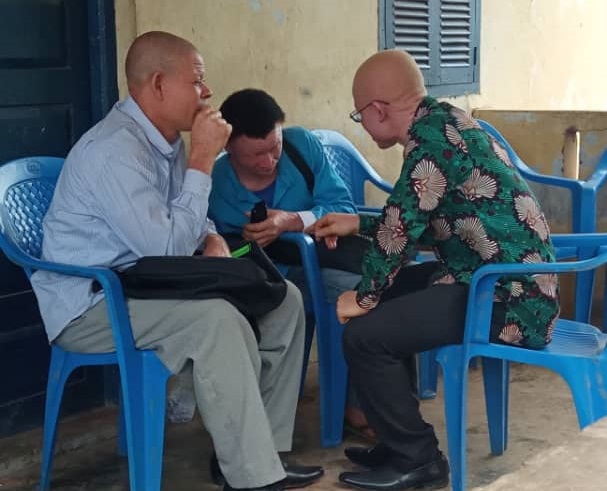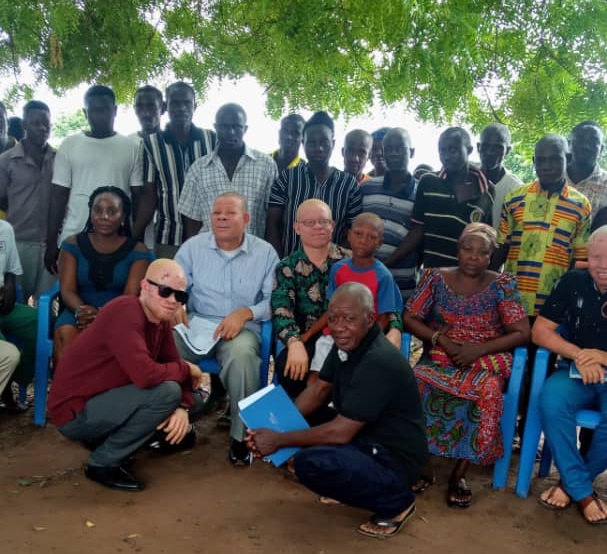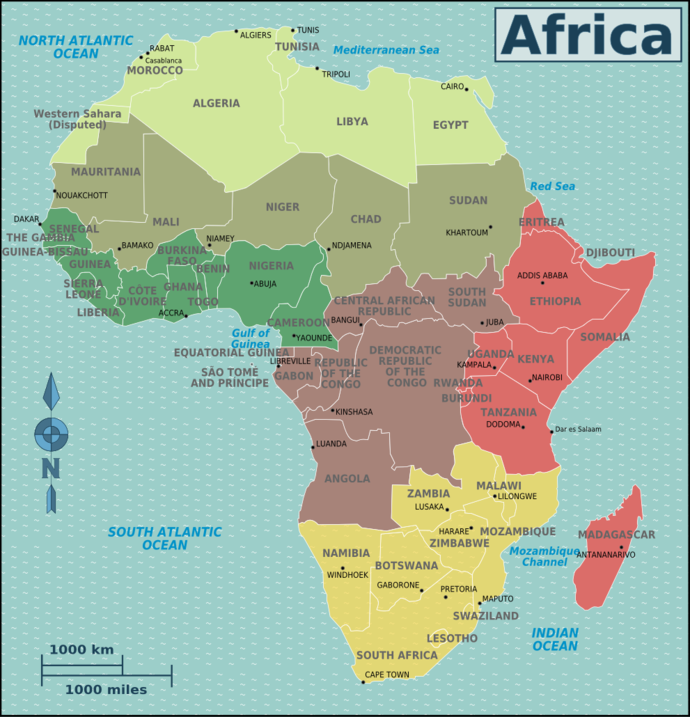
Published: August 14, 2019
By: Charles Pensulo, Thomson Reuters Foundation
BLANTYRE, Aug 14 (Thomson Reuters Foundation) – Three people have been sentenced to death in Malawi for the murder and mutilation of a person with albinism, a court official confirmed on Wednesday, a sanction the judge said would serve as a strong deterrent.
Malawi is one of the most dangerous countries for people with the condition, who are targeted for ritual killings because of a belief that their body parts can increase wealth.
Douglas Mwale, Sophie Here and Fontino Folosani killed Prescott Pepuzani in 2015, using a metal bar and a hoe handle before chopping off his hands and legs and burying him in Mwale’s garden in Mchinji district, Central Malawi.
Passing sentence on Tuesday at the High Court in Mchinji, Judge Esmey Chombo said it would act as a strong deterrent to others and help put an end to the crime.
Another man was sentenced to death in Malawi in May for murdering a teenager with albinism – the first time the death penalty had been handed down in such a case – though he has not been executed. (Also see my May 4 posting – webmaster FVDK).
Malawi operates a moratorium on the death penalty and last carried out an execution in 1992, according to research by Cornell Law School.
The southern African country is home to up to 10,000 people with albinism, a lack of pigmentation in the skin, hair and eyes.
Their body parts can fetch high sums in an underground trade concentrated in Malawi, Mozambique, Tanzania.
There have been more than 160 recorded attacks in Malawi including 22 murders since November 2014, according to human rights group Amnesty International. (italics added by the webmaster FVDK)
The government has denied accusations by rights groups that it is doing little to stop the violence.
Overstone Kondowe, who heads the African Union for People with Albinism, said he hoped the sentence would curb the attacks.
“This is really a big step and we want to encourage the Malawi government to continue (with tough penalties),” he said.
“Whether they will really be hanged or not, it’s not significant. The public will still get the message.”
Kondowe urged the courts to take a similarly tough stance with other pending cases, adding that the murders of people with albinism had fallen in Tanzania, which has imposed the death penalty in similar cases.
(Reporting by Charles Pensulo; Writing by Emma Batha; Editing by Claire Cozens. Please credit the Thomson Reuters Foundation, the charitable arm of Thomson Reuters, that covers humanitarian news, women’s and LGBT+ rights, human trafficking, property rights, and climate change. Visit news.trust.org)
Source: Malawi judge sentences three to death for albinism murder
Related articles:
Death penalty handed down for three albino killers in Malawi
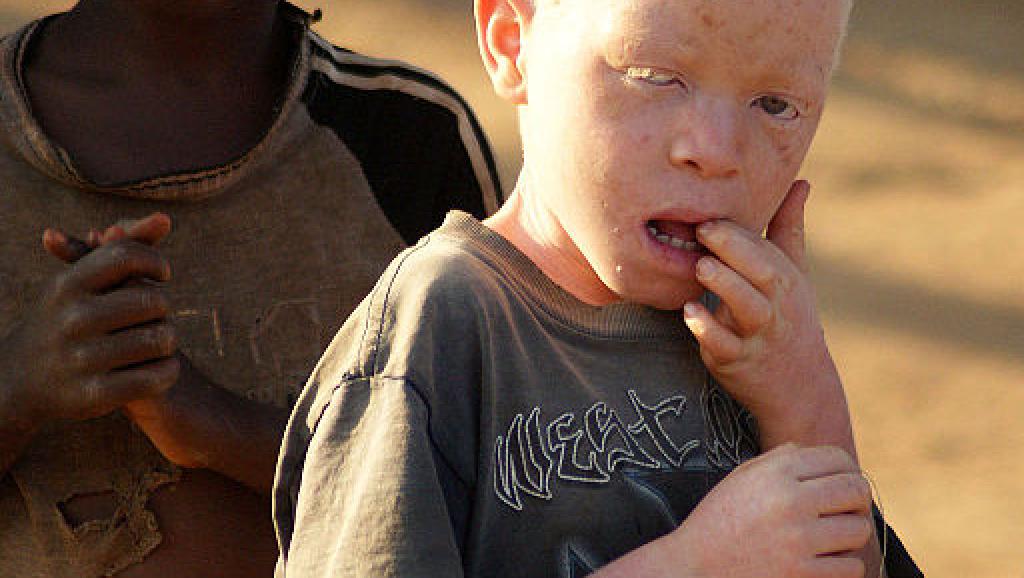
Published: August 14,2019
By: RFI
Two men and a woman have been sentenced to death in Malawi after being convicted of brutally murdering a man with albinism in 2015.
The “three were found guilty of (murder and possessing human tissue) and have been sentenced to death” in Mchinji on Tuesday, judiciary spokesperson Agness Patemba told Agence France Presse newswire.
Douglas Mwale, Fontino Folosani and Sophie Jere used a metal bar and hoe handle to kill Priscott Pepuzani, chopping off his limbs and burying his body. Body parts of people with albinism are seen as magical, their limbs used in witchcraft for good luck, wealth, or to win elections.
“This ruling enhances our faith in the judiciary and solidifies our belief that we have them as an advocate in our fight to curb killings and abductions against people with albinism,” Ian Simbota, the head of the Association of People Living with Albinism, said after the ruling.
He added that he hoped it would deter others from attacking people with albinism.
President Peter Mutharika created a commission of inquiry last March after a number of people with albinism were attacked. He had come under fire for not adequately responding to the issue.
Amnesty International released a report in May showing that 22 of the 163 cases reported in Malawi since 2014 have been murders, an indication that little had been done to combat the issue.
This is the second death sentence handed down this year for albino murders. In May, Willard Mikaele, the killer of Mphatso Pensulo, 19, was sentenced to death.
Death sentences are usually commuted to life imprisonment, as Malawi has not executed any criminals since 1994.
Source: Death penalty handed down for three albino killers in Malawi
And:
Malawi court sentences three to death over albino killing
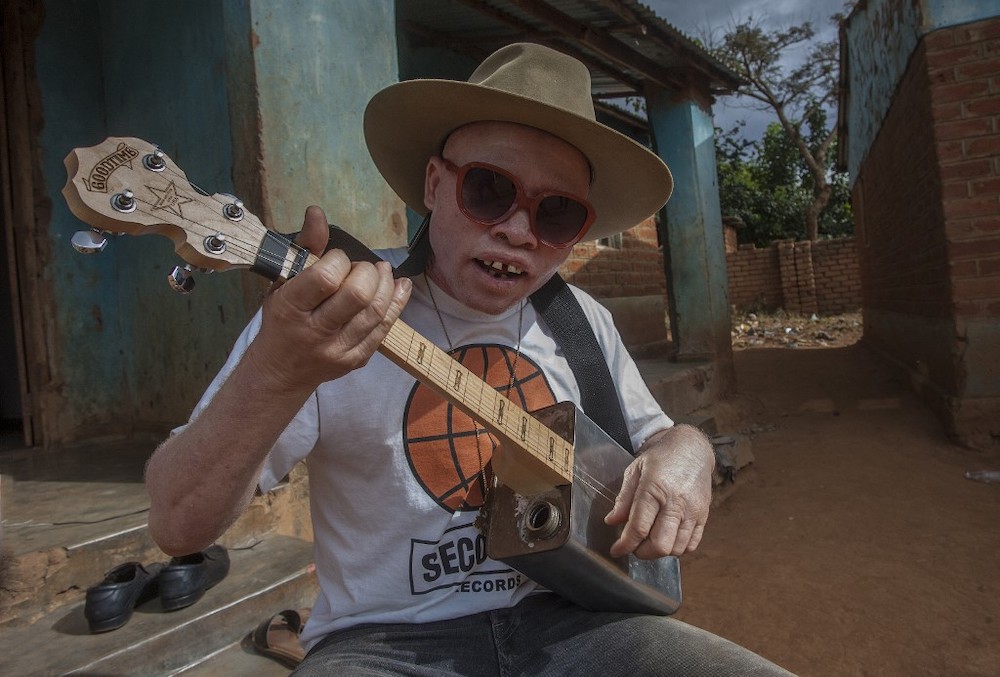
Published: August 14, 2019
By: MalayMail
BLANTYRE, Aug 14 — A Malawi court has convicted and sentenced two men and a woman to death for killing a person with albinism, a judiciary official said today.
Malawi has since late 2014 seen a surge in attacks on people with albinism, whose body parts are often used in witchcraft rituals to bring wealth and luck.
The court found Douglas Mwale, Fontino Folosani and Sophie Jere guilty of murdering Priscott Pepuzani in 2015 using a metal bar and a hoe handle. The trio chopped off Pepuzani’s limbs and later buried the rest of the body in a garden. The “three were found guilty of (murder and possessing human tissue) and have been sentenced to death,” Agness Patemba, judiciary spokeswoman told AFP. The sentence was handed down in the western town of Mchinji on Tuesday.
This is the second death sentence handed down in the country in the past three months following one in May this year for the murder of 19-year-old albino Mphatso Pensulo in 2017.
Malawi has not carried out any executions since 1994, with death sentences commuted to life imprisonment.
Association of People Living with Albinism welcomed Tuesday’s ruling, hoping it will deter attacks on their members.
“This ruling enhances our faith in the judiciary and solidifies our belief that we have them as an advocate in our fight to curb killings and abductions against people with albinism,” said Ian Simbota, leader of the association.
President Peter Mutharika in March appointed a commission of inquiry to investigate the spate of attacks on people with albinism after coming under mounting criticism over his response to the attacks.
Albinos are often targeted in brutal attacks in Malawi – one of the world’s poorest and most aid-dependent countries – because they have white skin due to a hereditary condition that causes lack of pigmentation. In many cases, those with albinism are targeted for their body parts to be used in witchcraft.
Of 163 cases reported in the country since November 2014, 22 have been murders, Amnesty International said in May 2019, criticising impunity for the crimes. Just 30 per cent of those attacks have been properly investigated, according to official statistics. — AFP (italics added by the webmaster FVDK).
Source: Malawi court sentences three to death over albino killing
And:
Malawi: 3 sentenced to death over killing of person with albinism – Second death sentence handed down in recent months related to violence against people with albinism.

Published: August 15, 2019
By: AlJazeera
A Malawi court has convicted and sentenced three people to death for killing a person with albinism.
The “three were found guilty of [murder and possessing human tissue] and have been sentenced to death,” judiciary spokeswoman Agness Patemba told the AFP news agency on Wednesday.
The court found Douglas Mwale, Fontino Folosani and Sophie Jere guilty of murdering Priscott Pepuzani in 2015 using a metal bar and a hoe handle. The trio chopped off Pepuzani’s limbs and buried the rest of the body in a garden.
The sentence was handed down in the western town of Mchinji on Tuesday.
This is the second death sentence handed down in the country in the past three months.
Another man was sentenced to death in May for murdering a teenager with albinism – the first time the death penalty had been handed down in such a case – though he has not been executed.
Malawi has not carried out any executions since 1994, with death sentences commuted to life imprisonment.
‘Big step’
In March, Malawi’s President Peter Mutharika appointed a commission of inquiry to investigate the spate of attacks on people with albinism, after coming under mounting criticism over his response to the attacks.
Overstone Kondowe, who heads the African Union for People with Albinism, said he hoped the sentence would curb the attacks.
“This is really a big step and we want to encourage the Malawi government to continue [with tough penalties],” said Kondowe.
“Whether they will really be hanged or not, it’s not significant. The public will still get the message.”
The Association of People Living with Albinism also welcomed the ruling, hoping it will deter attacks on their members.
“This ruling enhances our faith in the judiciary and solidifies our belief that we have them as an advocate in our fight to curb killings and abductions against people with albinism,” said Ian Simbota, leader of the association.
People with albinism, of which there are up to 10,000 in the country, are often victims of brutal attacks in Malawi – one of the world’s poorest and most aid-dependent nations.
This is because of their white skin resulting from a hereditary condition that causes a lack of pigmentation.
Other conditions associated with albinism include vulnerability to bright light, which can cause legal blindness.
Often, individuals with albinism are targeted in Malawi for their body parts to be used in witchcraft.
More than 160 cases have been reported in the country since November 2014, of which 22 have been murders, Amnesty International said in May 2019.
Just 30 percent of those attacks have been properly investigated, according to official statistics.
Source: Malawi: 3 sentenced to death over killing of person with albinism
PS The original AlJazeera article contains three additional, interesting presentations, one on ‘What is albinism and what causes it?‘ (Infographic), another called ‘Africa investigates: The spell of the albino’ – 25 minutes), and a third called ‘Killed for their bones – Read their story‘, a lengthy article with lots of photos, and worth reading (webmaster FVDK).
